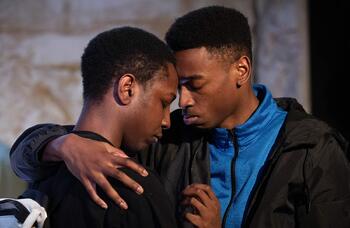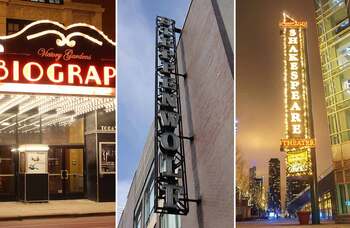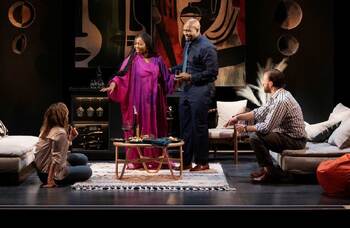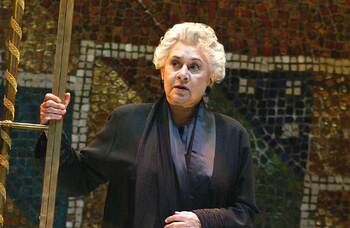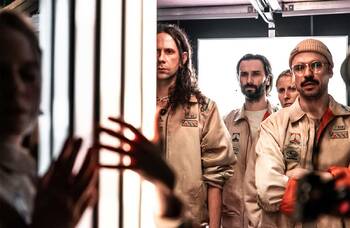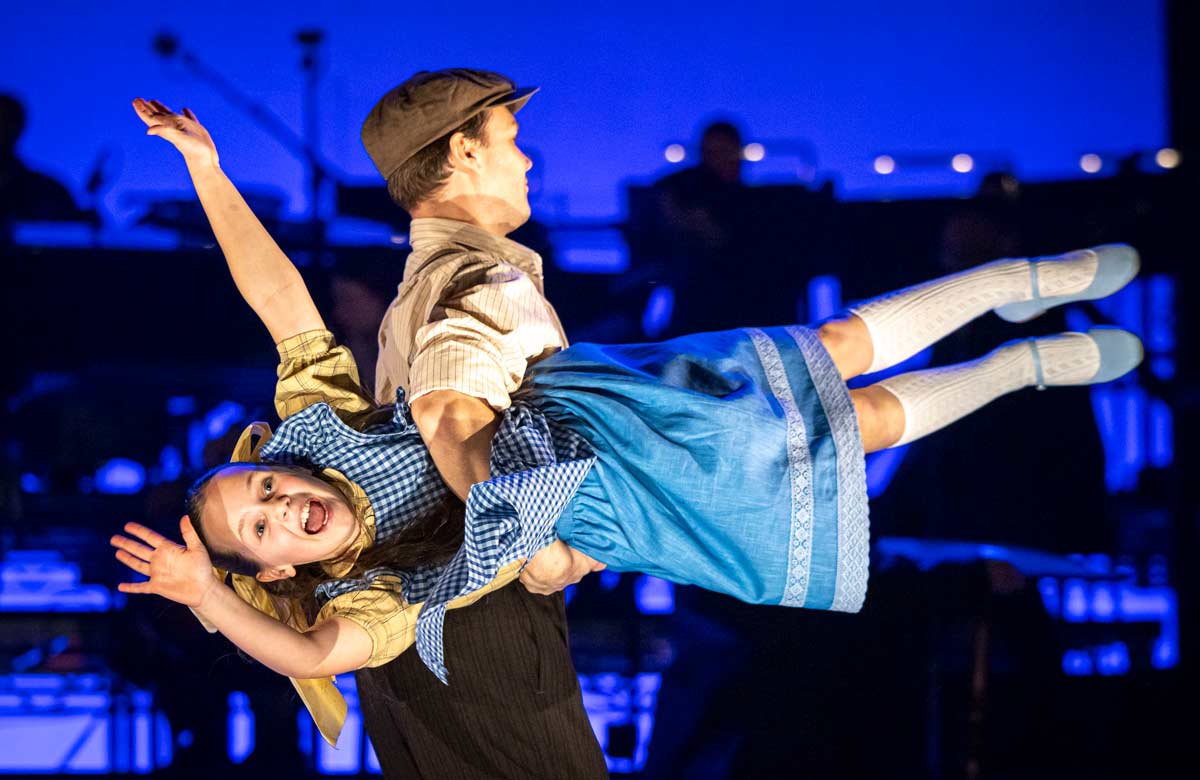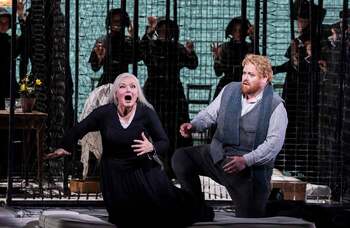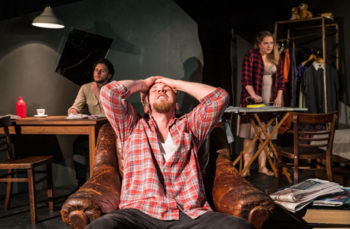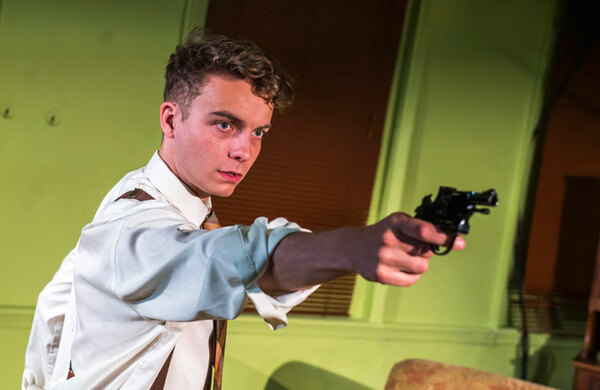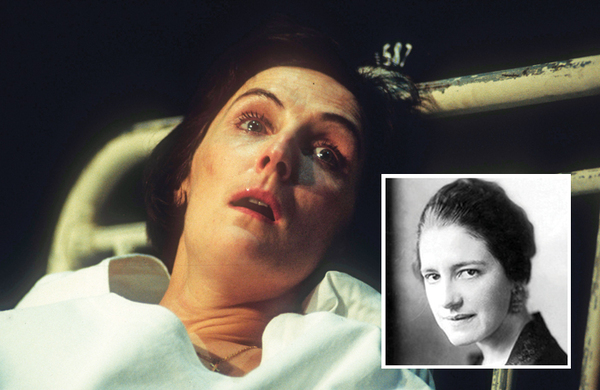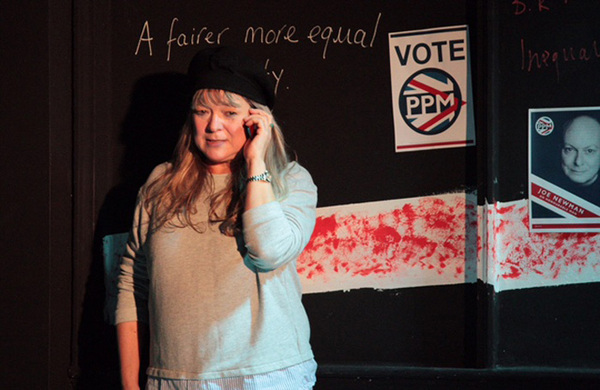This Bitter Earth review
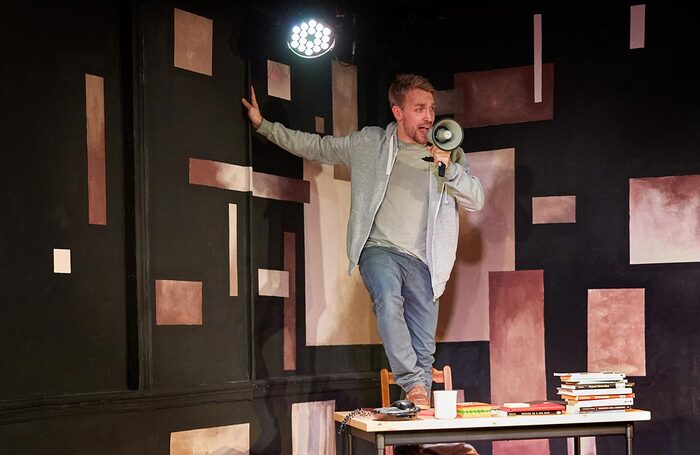
Tender two-hander charting an interracial relationship against the backdrop of the Black Lives Matter movement
Harrison David Rivers’ play, first performed at San Francisco’s New Conservatory Theatre Center in 2017, charts the relationship between interracial gay couple Jesse and Neil through a non-linear sequence of scenes set between the time of Obama’s re-election in 2012 and Trump’s rise to power in 2015. Yet no politicians are mentioned by name. Instead, the timeline is marked by grief for Black victims of police violence.
Rivers, like his protagonist Jesse, is a gay Black playwright from Kansas living in Minnesota, who attended Columbia University. His drama, the title of which refers to a song by jazz singer Dinah Washington, provides an intimate and poignant glimpse into a loving relationship strained by institutional violence, and asks: what is the most effective way to take a stand?
The couple meet at a rally in New York City when Neil finds himself with a megaphone, and recites a poem by the gay African-American poet Essex Hemphill – Jesse’s favourite writer. Although Jesse is initially annoyed by this act of cultural appropriation, the encounter culminates in a meet-cute over the shared niche literary reference. Neil, in possession of a large trust fund, assuages his white guilt through protesting and volunteering. Jesse, on the other hand, prefers to keep a low profile – his lip curls at the term “activist”, and he would rather let his writing speak for itself.
Continues...
In Peter Cieply’s likable production, Max Sterne effortlessly captures Neil’s easy, breezy charm, in part a product of his white privilege: he’s never been made to feel like an outsider. His straightforward, open manner is circumscribed only by his reticence about his family’s wealth, which he avoids discussing in case it becomes "a thing”. Martin Edwards’ self-deprecating Jesse, in contrast, is uptight and diffident. He admits he finds it difficult to connect with Black men, and prefers white partners because they are “allowed to be soft”.
Cieply’s staging is snugly nestled within set and costume consultant Isabella van Braeckel’s design of a writer’s study with a sepia, Mondrian-esque design on the wall. Amid a considerable amount of torso-baring, Neil’s denim shirt and Jesse’s taupe cardigan are a nice touch, denoting their complementary can-do and home-loving personalities.
The piece isn’t without flaws: the short scenes have a choppiness that means they don’t always flow, and the tragic climax is too understated. Nevertheless, there’s a real warmth of spirit here. It would be good to see more of Rivers’ work on the British stage.
More Reviews
Recommended for you
More Reviews
Recommended for you
Most Read
Across The Stage this weekYour subscription helps ensure our journalism can continue
Invest in The Stage today with a subscription starting at just £5.99
